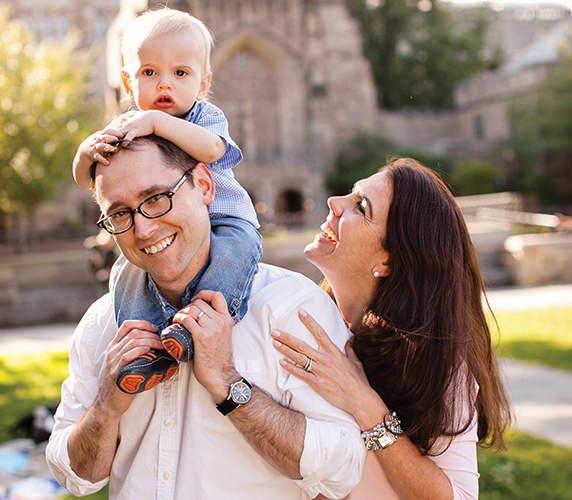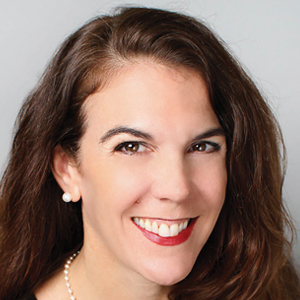Mean girls with Ph.D.s
As an academic in public health, I teach hundreds of students every year and publish mostly in scholarly journals and books. My work is semipublic, so I am used to scrutiny from people who do not know me as a person. I’ve been brutally criticized by journal reviewers, attacked by trolls in the popular media and insulted in course evaluations — all anonymously, of course.
 The author received personal attacks on Facebook after publishing an essay with this photo in The Washington Post.DREAMSCAPE STUDIO
The author received personal attacks on Facebook after publishing an essay with this photo in The Washington Post.DREAMSCAPE STUDIO
It’s never fun, but I’ve found ways to cope. It helps to commiserate with other professors about bad reviews and to realize that even my very best and most lauded colleagues also receive intensely negative evaluations on occasion from students.
I was in search of just that sort of empathy when I joined a Facebook group for academic mothers. Here I expected to find women who could relate to one another, as we juggled the same sorts of demands on our personal and professional lives.
Perhaps that’s why it hurt so much to see myself criticized on that Facebook page after The Washington Post published an essay I wrote this past spring on balancing an academic career and motherhood. In that column, I encouraged female academics who have children to be more vocal about motherhood so that they could serve as role models to students who might want to pursue both family and academic goals.
Some members of the Facebook group seemed to like my ideas. Others found my opinions to be invalid since I’m on the faculty at Yale University and things are “easier” at Yale. Those critics interpreted my column in the Post as a condescending lesson in how to achieve tenure, which is disheartening, because I do not have tenure and never will. I’m an associate professor on the medical school’s educator track, which does not lead to tenure.
But the part that really got to me was when these highly accomplished, incredibly smart women started criticizing the photograph of my family that accompanied the article. When I submitted the piece for publication, I attached a family photo that had been taken on the campus. I liked it because the university library appeared in the background, which I thought was symbolic. In the photo, my husband is holding our son on his shoulders, and I am looking up at my son’s face. I was quite happy when the publication told me they wanted to run the photo with my essay.
I was unprepared for the personal nature of the attack. An associate professor at a flagship state university wrote, “Does anyone else think the photo is weird? She is the author yet her husband is looking at the camera while she is looking adoringly at their kid.” (The piece is about motherhood: Am I not allowed to adore my child?) An associate professor at a small liberal-arts college replied, “I hate so much about the photo I can’t even read the piece.” A professor at an Ivy League university chimed in, “The photo made me want to gag as well.” Insult after insult filed in, many acquiring “likes” — virtual applause — while I watched it all in real time.
Face flushed and heart pounding, I wrote “Thank you!” on the same thread. And the thread went silent for a few hours, until one person stepped forward to write, “I think the photo is loving and sweet.” I thanked her, noting that I had not expected to be criticized for the way my family appears in a photo, and posted a meme of “Mean Girls.” Immature? You bet.
I wanted them to know that they were saying these things, in the virtual sense, to my face. In response to my speaking up, people started removing their comments. Several women apologized publicly, and others emailed me directly to apologize.
Online forums provide enough distance from the target of attack that virtual name-calling — and career slamming or family bashing — might be viewed as acceptable behavior. But once people are faced with the reality that they are insulting someone directly — a real person and not just the two-dimensional stereotype they’ve imagined — they are uncomfortable. The woman who hated my family’s photo so much that she “could not read the piece” resented being called a mean girl.
A half a century ago, a psychologist named Milton Rokeach talked about the power of “self-confrontation” in motivating behavioral change. The basic notion is that, being the fallible creatures that we are, we sometimes behave in ways that do not match up with our personal values. For example, in theory, women might value being kind to and supportive of other women. But in practice we might behave in catty ways. When forced to step back and observe our own cattiness, we might become extremely uncomfortable. That discomfort should motivate change — either in behavior or in values. In my story, many women immediately changed their behavior when I pointed it out.
We as humans have been known to be a cruel lot. We want to think of ourselves as nice people (and many of us are), yet even the nicest of us shows signs of cruelty when threatened. Research on bullying has identified that bullies (a.k.a “relational aggressors”) are struggling with insecurities of their own. They engage in bullying as a means to boost their own popularity or security within their peer group.
This is nothing new — and we don’t need Facebook as a medium to confirm how nastiness accelerates in a group. All of us are susceptible to it, but not many of us want to think of ourselves that way.
In my case, once my peers understood that their comments were hurting a real person, many backed off. Perhaps online trolling and less extreme forms of public criticisms are just that: A failure to recognize that there are real people at the other end of the attacks.
What this experience taught me is that abusive online behavior is not relegated to teenagers and anonymous internet trolls. Mean girls can be found in a wide variety of places, even those that we presume to be safe havens. But I also learned that when people realize that they are hurting a real person, they tend to regret it. And that gives me a lot of faith in the overall goodness of people. Even though they sometimes can be really mean.
Enjoy reading ASBMB Today?
Become a member to receive the print edition four times a year and the digital edition monthly.
Learn moreGet the latest from ASBMB Today
Enter your email address, and we’ll send you a weekly email with recent articles, interviews and more.
Latest in Opinions
Opinions highlights or most popular articles

Women’s health cannot leave rare diseases behind
A physician living with lymphangioleiomyomatosis and a basic scientist explain why patient-driven, trial-ready research is essential to turning momentum into meaningful progress.

Making my spicy brain work for me
Researcher Reid Blanchett reflects on her journey navigating mental health struggles through graduate school. She found a new path in bioinformatics, proving that science can be flexible, forgiving and full of second chances.

The tortoise wins: How slowing down saved my Ph.D.
Graduate student Amy Bounds reflects on how slowing down in the lab not only improved her relationship with work but also made her a more productive scientist.

How pediatric cataracts shaped my scientific journey
Undergraduate student Grace Jones shares how she transformed her childhood cataract diagnosis into a scientific purpose. She explores how biochemistry can bring a clearer vision to others, and how personal history can shape discovery.

Debugging my code and teaching with ChatGPT
AI tools like ChatGPT have changed the way an assistant professor teaches and does research. But, he asserts that real growth still comes from struggle, and educators must help students use AI wisely — as scaffolds, not shortcuts.

AI in the lab: The power of smarter questions
An assistant professor discusses AI's evolution from a buzzword to a trusted research partner. It helps streamline reviews, troubleshoot code, save time and spark ideas, but its success relies on combining AI with expertise and critical thinking.

